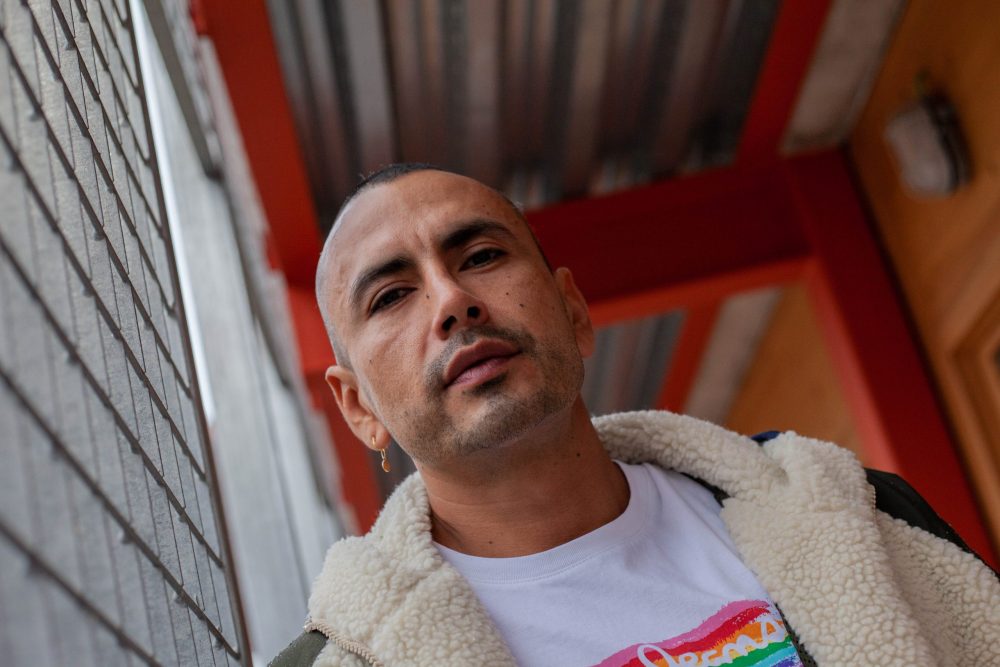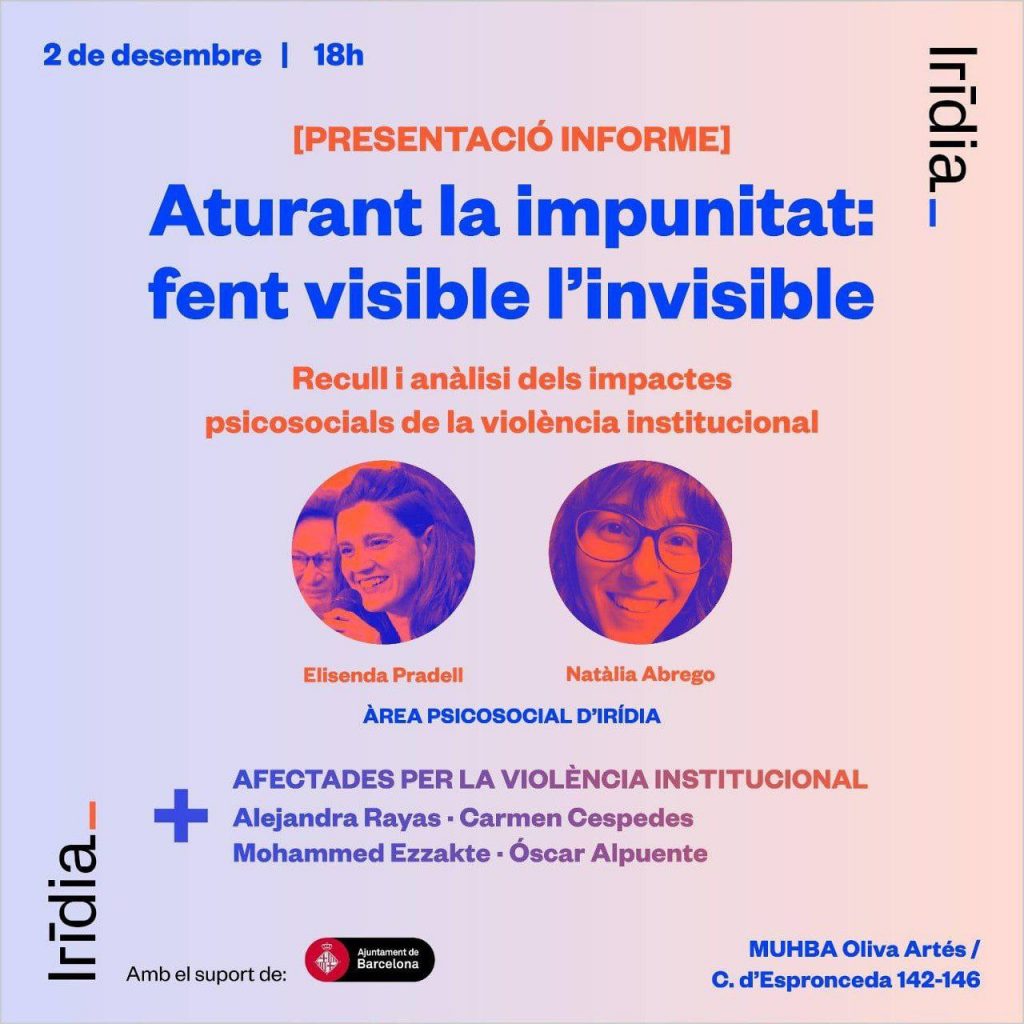Making the invisible visible: Irídia presents a report on the psychosocial impacts of institutional violence

DOWNLOAD THE REPORT [CAT]
Today we present the report «Making the invisible visible: Psychosocial impacts of institutional violence. Impunity and revictimization under review» with an event. The document, prepared by the team of psychologists of the psychosocial area, analyzes the impacts on the mental health of people who have suffered violence by state security forces or other agents with law enforcement functions. To do so, it collects cases of aggressions in prison, in the CIE, during protests and in the public space.
The presentation will be attended by Natàlia Abrego and Elisenda Pradell, psychologists and authors of the report, who will explain what these impacts consist of. The event will also feature the witnesses of three people affected by this type of violence, who will explain their personal experiences. They are Óscar Alpuente, injured with a rubber bullet in the eye during a soccer celebration; Alejandra Rayas, who received several blows of truncheon in the head on 1-O of 2017 and Mohammed Ezzakte, who suffered an aggression to the public space.
The report has been elaborated through the observation of the cases that have reached the organization during the last years. In the period from 2020 to 2021, 274 interventions have been carried out related to strategic litigation cases in which Irídia acts as a popular or private prosecutor and 110 more in cases in which the organization performs advisory and follow-up tasks. In total, psychological care has been provided on 384 occasions. This care is always provided from a psychosocial perspective, which consists of situating the impact not only on the subject but also in his or her historical and social space.
Among the main psychosocial impacts identified in the course of this research is revictimization, which occurs when the victim’s version is questioned or when she receives new violence from the public administration in the course of her complaint. This is linked to personal delegitimization and damage to the dignity of individuals. There is also an increase in insecurity in the public space – with fearful reactions to the presence of police forces – and a rupture of the basic beliefs of justice or the goodness of people that are usually integrated in the collective imaginary. Moreover, when there are visible injuries especially, self-esteem and self-image are also affected. Finally, it has been detected that these events affect people’s future projection and break their life project, either because of the alterations in their physical or mental health, or because of the implication in a judicial process or because of the prominence that the aggression suffered takes in their lives. The impunity – the lack of punishment for these aggressions – that often accompanies these cases aggravates these impacts.
For all these reasons, Irídia has made a series of recommendations to the institutions with the aim of preventing psychosocial impacts and improving care for people who have suffered institutional violence. In the first place, we ask that effective control mechanisms be activated in the police forces to facilitate investigation processes that avoid impunity and generate reparation mechanisms. Also that legal operators do not question the stories of the affected persons or place them under suspicion. Finally, they call for the creation of a specific unit within the Institute of Legal Medicine and Forensic Sciences of Catalonia (IMLCFC), specialized in the assessment of cases of institutional violence, along the same lines as the Comprehensive Forensic Assessment Unit (UVFI) in cases of gender violence.
In specific areas, such as prisons or CIE, we ask that existing protocols be reviewed to ensure that human rights are met and that any person who needs it be attended to at the health level to ensure their mental health. We propose adopting measures such as monitoring the mental health of the persons taken and training officials in psychological first aid.

